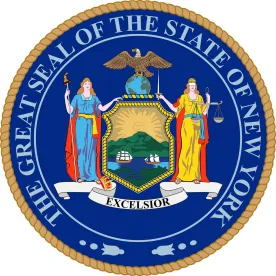As summer turns to fall, New York State Governor Kathy Hochul, with choreographed fanfare, celebrated Labor Day by signing several employment-related bills into law.
Notably missing from the Governor’s autograph spree was the bill banning non-compete agreements, which has yet to be signed into law, despite being passed by the state legislature in early summer. As time moves along, it seems increasingly unlikely that the bill will ever become law, at least in its current form. Given the significance of this measure, employers are breathlessly awaiting the fate — if not lobbying for a veto — of this bill.
In the meantime, employers are urged to keep at least one eye on the new legislation that Governor Hochul actually signed into law just after Labor Day.
Banning “Captive Audience” Meetings
New York Labor Law (Section 201-d) now bars employers from disciplining an employee who refuses to participate in what is commonly known as a “captive audience” meeting — specifically a mandatory meeting, speech, or communication in which the employer’s primary objective is to “communicate the employer’s opinion concerning religious or political matters.”
This new prohibition is effective immediately, does not cover managers or supervisors, and requires employers to post a workplace notice advising employees of their newly created rights.
The law expressly defines “religious matters” as “matters relating to religious affiliation and practice and the decision to join or support any religious organization or association. “Political matters” are defined as “matters relating to elections for political office, political parties, legislation, regulation and the decision to join or support any political party, or political, civic, community, fraternal or labor organization.”
In short, employers cannot require non-supervisory/non-managerial employees to attend a meeting where the employer tries to persuade the employees not to join or form a union. The amended law seems clearly at odds with long-standing National Labor Relations Board (NLRB) precedent (Babcock v. Wilson), which allows employers to hold such mandatory meetings concerning union organizing. Indeed, under federal labor law, captive audience meetings have — for decades — been commonplace occurrences, allowing an employer to share with employees its views on union organizing and the potential impact it could have on the employer’s business and workforce. The current NLRB general counsel is actively working to undo this long-standing precedent and replace it with a ban on captive audience meetings (see GC Memo 22-04).
In recent years, other states (Oregon, Minnesota, Connecticut, and Maine) have enacted captive audience bans. The Connecticut law is currently being challenged in a federal district court by a group of business associations on grounds that it violates the First and Fourteenth Amendments of the U.S. Constitution, specifically by discriminating against employer viewpoints on political matters and chilling employer speech. The court recently denied the motion to dismiss brought by the state’s Commissioner of Labor and Attorney General. The case is still pending, and the law remains in effect.
It is too early to tell whether a similar challenge to the New York law will be made, much less succeed. In the meantime, employers should (i) avoid captive audience meetings in favor of voluntary meetings, (ii) expand anti-retaliation policies to cover any employee’s decision to skip an employer’s meeting on unions, and (iii) ensure that supervisors are aware of the prohibition and how to avoid violations.
Wage Theft May Now Constitute Criminal Larceny
The Empire State continues to tighten the screws on employers that violate the state’s wage laws. One of the new bills signed by Governor Hochul amends the New York Penal Law which designates wage theft as criminal larceny. The amendment is effective immediately.
Under the law, “a person steals property and commits larceny when, with intent to deprive another of property or to appropriate the same to himself or to a third person, he wrongfully takes, obtains or withholds such property from [its] owner.”
With the amendment, the definition of “property” now includes “compensation for labor services,” and a person “obtains property by wage theft when he or she hires a person to perform services and the person performs such services and the person does not pay wages, at the minimum wage rate and overtime, or promised wage” to the person for work performed.
A larceny offense in New York is a felony if it involves at least $1,000. Significantly, the new wage theft amendment provides for the aggregation of unpaid wages across multiple victims, making it easier to put employers over the felony amount threshold.
New York already has extensive wage law protections under New York Labor Law, which allows employees to pursue claims in court or before the Department of Labor and provides for civil remedies and criminal penalties. With the Penal Law, wage theft now fully enters the criminal arena, with prosecutors determining whether to pursue charges and convictions against employers who could face prison time if found guilty. It will be interesting to see what level of resources prosecutors’ offices will commit to enforcing this new law.
Needless to say, any New York employer who has not been paying attention to New York wage law could be risking prison time for a failure to do so.
Protecting Gender Identity/Expression for Interns
A week before Labor Day, Governor Hochul signed a bill amending New York State Human Rights Law to add “gender identity and expression” as a protected category in the provisions prohibiting discrimination against interns. The amendment is effective immediately, and it extends to interns this category of protection already applicable to other covered individuals.
Increasing Minimum Workers’ Compensation Benefits
Finally, for those laboring in the workers’ compensation law space, Governor Hochul signed a bill increasing the minimum permanent or temporary disability benefits for employees suffering work-related injuries — $275 per week in 2024, $325 in 2025, and one-fifth of the state average weekly wage in 2026.




 />i
/>i

